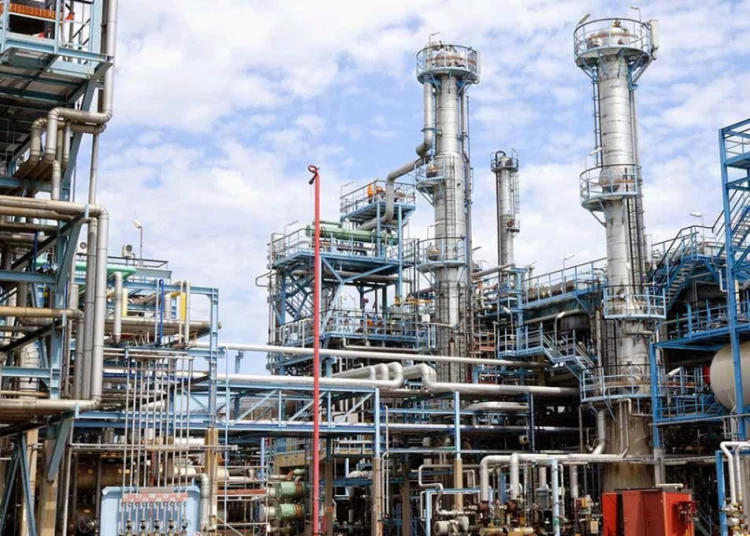Illegal bunkering and the lifting of crude oil by non-state actors have remained some of the most intractable predicaments confronting the nation’s oil and gas sector. It is so disturbing that the nation is not only falling short of its Organisation of Oil Producing Countries (OPEC) quota of 1.8 million barrels per day (bpd) but also losing huge sums needed for critical national development efforts. Actually, in July this year, the country was reported to have produced only 1.08m barrels and available records show that since the beginning of 2022, the production level has not exceeded 1.5mbpd.
It is a highly organised, syndicate- run scam and those behind the obvious economic sabotage are living large at the expense of the nation. Because of the nature of the illegal operation and the individual and groups involved, all efforts to stamp it out has not yielded any appreciable result.
As should be expected, this has continued to affect the economy since much of Nigeria’s foreign earnings come from oil receipts. It is estimated that in the first quarter of 2022 alone, the country reportedly lost about $1 billion in revenue. This huge sum, which could have been channeled to critical infrastructure deficit, was lost to local saboteurs and their foreign collaborators.
Recently, the Nigerian National Petroleum Company Limited’s (NNPCL) boss, Mele Kyari told a Committee of the House of Representatives that the corporation discovered over 200 insertions on the country’s oil pipelines. Of course, those stealing the nation’s oil with reckless abandon are behind these insertions.
In addition, the chairman of Nigerian Upstream Petroleum Regulatory Commission, Gbenga Komolafe, also said that about 132 million barrels of the 141 million barrels of oil produced in the first quarter of 2022 were received at export terminals. We recall that a few weeks ago, a super tanker with a capacity of three million barrel was arrested in Equatorial Guinea after evading arrest in Nigeria.
The federal government said it would soon reveal the identity of those behind oil theft. But while the nation is waiting for this to happen, the government awarded a multi-billion-naira pipelines surveillance contract to a private security outfit owned by a former Niger Delta militant, Government Ekpemupolo, otherwise known as Tompolo. It was gathered that the surveillance contract is worth N48 billion per year amounting to N4 billion every month.
Justifying the government’s decision to award the contract, NNPCL’s Chief Executive, Mele Kyari said it was necessitated by the need to hire private contractors to man oil pipeline networks nationwide due to massive oil theft. As should be expected, the decision has continued to generate reaction with some Nigerians viewing it as an ill-advised route to take.
In the considered opinion of this newspaper, the pipeline surveillance contract is a patently flawed move that ought not to have been contemplated by this government in the first place. We are worried that in sanctioning such a contract, which has both economic and security implications for the country, to a private firm, the federal government has technically approved arms-bearing, and the use of heavy assault weapons, by non-state actors.
By giving the contract to Tompolo, the federal government, is implying that the Navy, Police, Nigeria Security and Civil Defence Corps (NSCDC) and other security agencies that should protect these critical national resources lacked the wherewithal to do so. That is clearly an indictment which also suggests that there is an urgent need for a total overhaul of the nation’s security architecture.
Informed opinion has it that the contract is a blackmail deliberately contrived to keep the militant and his fellow travellers quiet. We are, however, worried that the contract may not lead to an end to oil theft. What is worse is that it may not guarantee the much-needed sanity considering the fact that some groups in the region have come out to insist on being part of the surveillance contract.
Already, there are media reports that some militant groups in the Niger Delta region are angry with the federal government for leaving them out of the surveillance contract even as they threaten to make it unworkable.
It is clear that the large-scale oil theft, which seems to have defied all practical solutions, is an organised crime involving the untouchables in the society. The government itself admitted this fact when it pledged to unmask the powerful individuals that are behind it. We urge the government to do that fast. What the nation needs at a critical time like this is the political will to urgently name and prosecute those behind this thievery.
It may not be out of place to describe this contract as a deliberate attempt to pacify Tompolo and the vested interest that he symbolizes. Rather than engage in yet another spending spree under the guise of awarding a pipeline surveillance contract, the government must do the needful by getting to the root of this organised crime, name and shame all those behind it and then, fully mobilise the nation’s security operatives to effectively guard the coastal area.





